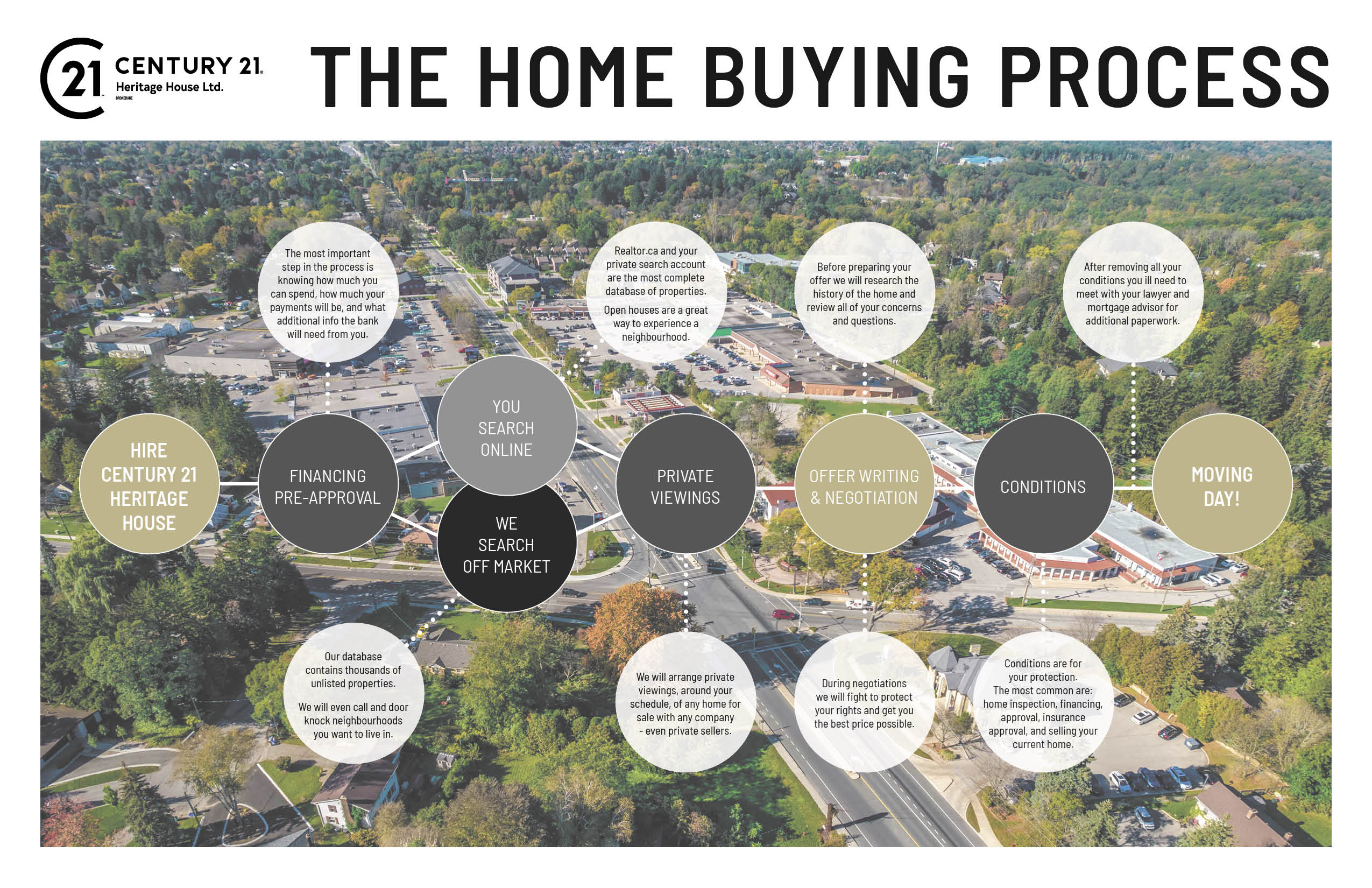
What Mellissa Will Do For You
Buying a home can seem overwhelming. Allow me to make the process easier and take the hassle out of house hunting.
• Fully inform you about the home buying process and traditional real estate practices
• Explain the costs incurred in your home purchase and all the important documents
• Represent your best interests
• Refer you to a good Mortgage advisor
• Locate the widest possible range of properties for sale
• Access to other Realtors listings including their exclusive listings
• Key negotiation tactics to save you money when buying a new home
• Supply you with a list of properties that meet your needs
• Notify you of price changes on listings that meet your specifications
• Advise on positive and negative property influences
• Provide my personal assessment of the home
• Review and analyze relevant comparable properties before submitting an offer
• Discuss with you the pros and cons, your comfort level when it comes to offering, and
draft the best agreement that fits your needs
• Present your offer
• Help you navigate through the conditions, in applicable, to firm up your offer
• Co-Ordinate additional walk throughs prior to closing

What Mellissa Will Do For You
Buying a home can seem overwhelming. Allow me to make the process easier and take the hassle out of house hunting.
• Fully inform you about the home buying process and traditional real estate practices
• Explain the costs incurred in your home purchase and all the important documents
• Represent your best interests
• Refer you to a good Mortgage advisor
• Locate the widest possible range of properties for sale
• Access to other Realtors listings including their exclusive listings
• Key negotiation tactics to save you money when buying a new home
• Supply you with a list of properties that meet your needs
• Notify you of price changes on listings that meet your specifications
• Advise on positive and negative property influences
• Provide my personal assessment of the home
• Review and analyze relevant comparable properties before submitting an offer
• Discuss with you the pros and cons, your comfort level when it comes to offering, and
draft the best agreement that fits your needs
• Present your offer
• Help you navigate through the conditions, in applicable, to firm up your offer
• Co-Ordinate additional walk throughs prior to closing
First Steps for Buyers
The first step for any home buyer is to speak with a good mortgage advisor!
Here are some common financing mistakes that buyers make:
• Thinking you won’t qualify for a mortgage
• Not knowing all the down payment choices
• Focusing too much on the interest rate rather then the overall impact on the
financing
• Not knowing how to calculate a realistic budget
• Not getting a pre-approval before placing an offer
It is common for second time buyers who have a home to sell, to not speak with your mortgage advisor before starting to search for a new home. It is important to get advice ahead of time.
Here are some questions you should be asking your mortgage advisor:
• Can I firm up on a purchase before selling?
• How much does bridging finance cost of our closing dates done align?
• Has my credit changed since my last purchase?
• Am I able to hold on to my current home as an investment?


What Are You Looking For in a Home?
How long do you expect to live in this home? No matter what type of housing you choose, you should have a clear plan of todays needs as well as future needs.
Together, we will sit down to discuss the type, size, style and location of the kind of home you are interested in purchasing. After extensive research on my part, we will preview homes together that fall into that category.
Here Are Some Things to Consider:
Size
How many bedrooms?
How many bathrooms?
Do you need a home office area?
What kind of parking facilities do you
need? And, for how many cars?
What Location?
Even if a home checks all the boxes, if it is not in the right area, then its probably not the home for you and your family.
Do you want downtown? Suburbs? Small Town? Country?
Distance to work? Take into consideration the commuting costs.
School district? Do you want you children bused or walk?
Recreational facilities or park nearby?
How close do you want to be to family and friends?
Special Features
Do you want air conditioning?
Do you want storage or hobby space?
Is a fireplace or a swimming pool high on your list?
Is there anyone in your family with special needs?
Do you want any special features to save energy?
Lifestyles & Stages
Do you have children or plan to?
Do you have a teenager who will be moving out soon?
Are you close to retirement?
Do you want a home to accommodate different stages of life?
Do you have an older relative or parent who might come live with you?
Understanding the Advantages of Home Ownership
Buying
• Your mortgage payments may never go up.
• You can use, decorate, make physical changes to, and enjoy your home as you see fit.
• You may increase your equity as your home appreciates in value.
• You are not at the mercy of your landlord.
• Your house will beome "home", not a temporary living situation.

Renting
• Your rent can go up each year, typically 4% to 10%
• You must get permission from your landlord to make any changes to your dwelling.
• You have no equity built up. Your money is gone for good.
• You can be evicted and lose your security.
What Type of Home Should You Buy?
New Build
• New homes have up-to-date designs
• You may be able to choose certain features such as siding, flooring, cabinets, and more
• Lower maintenance costs because everything is new and many items are covered by warranty. Tip: Set aside money every year for future maintenance costs
• There may be extra fees if you want to add additional features such as fireplaces, landscaping, paved driveway, etc. Make sure you know what is included in the price of the home so that you can budget for many upgrades and extras you might desire
• Neighbourhood amenities might not be completed for several years and you may find yourself living with a lot of dirt and construction.
• Taxes (HST) may apply to purchasing your new home, but you might be eligible for a rebate from the builder. Note: This does not apply to all builders
• A home warranty may be provided by the builder. Make sure you review so that you know what is included in that
• New Home Warranty programs are generally provided by the government. There are also private home warranty programs.
Re-Sale
• Since the home already exists you are able to see what you are buying. Typically, these are already in established neighbourhoods therefore you can see what amenities are offered. Such as schools, library, shopping, etc.
• Previously owned homes may already have the extras that are on your must have list. These could include fireplaces, central air, decks/patios, landscaping, finished basement, etc.
• You don’t have to pay HST unless the house has been renovated substantially.
• You may want to redecorate or do renovations. There may also be major repairs that need to be done such as replacing the roof, windows, doors or other mechanicals

Understanding the Common Mistakes Home Buyers Make
I will help your purchase go smoothly and help you avoid making the most common mistakes made by home buyers:
1. Not understanding a local market and all that is available.
2. Not screening the masses, trying to see everything, both in their own price range and outside your range.
3. Not understanding pricing and the value of certain amenities.
4. Weak negotiating. This mistake alone can cost a buyer thousands of dollars.
5. Not requiring the proper inspections.
6. Not understanding all available financing options.
7. Looking for the perfect home.
8. Not previewing schools, shopping, and other neighbourhood amenities.

Why Every Buyer Needs A Home Inspection
A home inspection gives you more detailed information to help you make a wise decision. In a home inspection, a qualified inspector takes an in-depth, unbiased look at your potential new home to:
1. Evaluate the physical conditions, structure, construction and mechanical systems.
2. Identify items that impact the habitability of the home that will need to be repaired or replaced.
3. Estimate the remaining useful life of major systems, equipment, structure and finishes.
What goes into a home insepction?
A home inspection gives you an impartial, physical evaluation of the overall condition of the home and the items that need to be repaired or replaced. The inspection gives a detailed report on the condition of the structural components, exterior, roofing, plumbing, electrical, heating, insulation and ventilation, air conditioning, and interiors.
BE AN INFORMED BUYER: It is your responsibility to be an informed buyer. Be sure that what you buy is satisfactory in every aspect. You have the right to carefully examine your potential new home with a qualified home inspector. You may arrange to do so before signing your contract as long as your contract states that the sale of the home depends on the inspection.
HOME BUYER'S GLOSSARY
AMORTIZATION SCHEDULE
The number of years it takes to repay the entire amount of the financing based on a set of fixed payments.
Equity
The process of determining the market value of a property.
Open Mortgage
A mortgage that can not be prepaid or negotiated for a set period of time without penalties.
Closing date
The date on which the new owner takes possession of the property and the sale becomes final.
Collateral
An asset, such as term deposit, Canada Savings Bond, or automobile, that you offer as security for a loan.
Deposit
A sum of money deposited in trust by the purchaser on making an offer to purchase. When the offer is accepted by the vendor (Seller), the deposit is held in trust by the listing real estate broker, lawyer, or notary, until the closing date of sale, at which point it is given to the vendor.
Home Equity
The difference between the market value of the property and any outstanding mortgages registered against the property. This difference belongs to the owner of that property.
Mortgage
A mortgage is a loan that uses a piece of real estate as a security. Once the loan is paid-off, the lender provides a discharge for that mortgage.
Term
The period of time the financing agreement covers. The terms available are; 6 Month, 1,2,3,4,5,6,7,10 year terms, and the interest rate will be fixed for whatever term one chooses.

